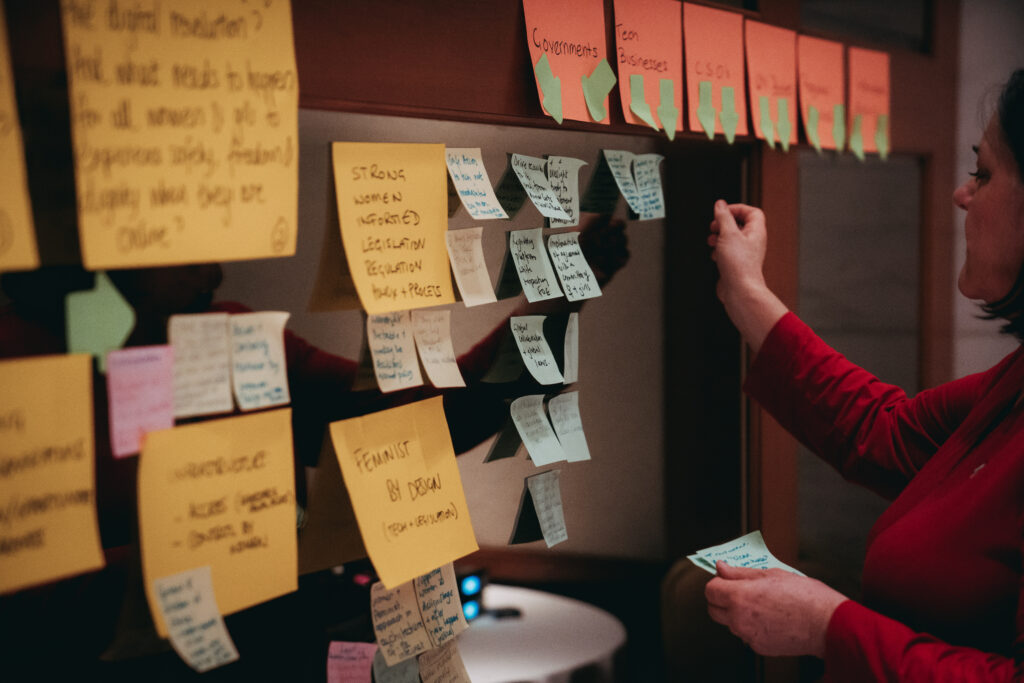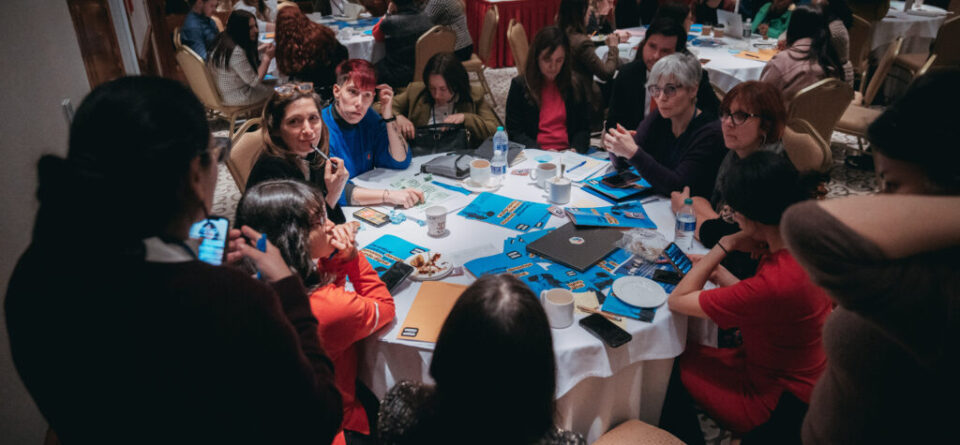Friday, 17th March was the closing day of two weeks of intensive talks at the UN’s CSW 67, the theme of which was how innovation and technological change is affecting women. Engaging with so many committed people helped me to understand how women are affected by technology in different regions of the world and have left me feeling hopeful because are so many other campaigners out there who also want to make sure that digital technology works for everyone.
Why we need a digital rights framework
Of course, there is broad agreement that digital innovation can help to progress gender equality. But there is also increasing awareness of the new ‘gender divide’ and of how new tech is at the same time reversing progress on women’s equality.
Firstly, half of the planet can’t access the internet in the first place, and women are less likely to be online than men. This means that women are missing out on being able to fully participate in society; they don’t have the same economic opportunities, and they can’t take part in political decisions being made about them.
But, (and this is the second problem), when women do access the internet, they are entering a world where misogynistic discrimination and biases that are happening in the physical world get amplified. It’s misogyny on steroids.
So what we’ve had is an explosion in online sexual and gender-based violence, such as: the non-consensual sharing of intimate images of women and girls; stalking; sexual harassment; doxxing; rape threats, death threats; extortion; smear campaigns; and controlling behaviour facilitated by smart devices.
All of this is designed to put women back in their place. To make them retreat from taking part in public life. And to curtail women from being able to take advantage of and access their full human rights.
The lack of representation
And the third problem we have stems from a lack of representation of women in this area. There simply aren’t enough women writing the content or making the decisions. Only 1 in 5 people working in the AI industry are women
And 80% of content generated for Wikipedia is made by people who identify as men.
This lack of representation is contributing to women providing less data, leading to unbalanced data sets used to train machines, which can then result in predictive algorithms perpetuating gender-based discrimination.
One person with a sexist bias can have a profound impact on the women in close physical proximity to them. But if that same person is programming an algorithm, they are creating biased decision-making scenarios that impact thousands, sometimes hundreds of thousands, of people.
And, of course, it’s not just misogyny that we’re talking about. Women face multiple and overlapping forms of discrimination based on a range of social characteristics.
And in general, it’s the groups of people who are already most disadvantaged or marginalized in our society who are facing the same biases and discrimination online.
Add to this- internet shutdowns which impact women more than men (when they lose access to education or healthcare advice, for example); and the energy-hungry needs of machine learning adding to climate change, and you start to get a picture of why a feminist approach is important when regulating the internet and digital technology.
The conclusions of CSW 67
The final conclusions of CSW reflected many of AUDRi’s concerns, including:
- closing the gender gap in relation to access to tech;
- expressing concern about tech-facilitated gender-based violence;
- calling for more the promotion of safe and gender-responsive tech and innovation; the fostering of a gender perspective in the design of emerging tech;
- and the adoption of regulations to ensure that they are subject to adequate safeguards to combat new risks, gender stereotypes, and negative social norms.
CSW came at just the right time, showing why it’s important to put women at the centre of the UN’s Global Digital Compact, a proposed set of principles for a free, open, and secure digital future for all.
Negotiations between member states on the content of the Global Digital Compact start later this year. And so, CSW was a good reminder to Governments of why a human rights-based, feminist, and intersectional agreement is needed.
AUDRi spent our time there connecting with government representatives, thrashing out some of the potential solutions with other CSOs, and asking women from all over the world what they want from a Global Digital Compact at our consultation event with UN Women and the UN Envoy on Technology.

We’re particularly invested in making sure that the solutions posed by countries in the Global North don’t work against the interests of women in the Global South, for example by enabling state censorship or curtailing freedom of expression.
Watching the UN Secretary-General talk about the need for decisive and deliberate action to create change in this area made us feel like we have a good ally. We agree with him that ‘guardrails’ need to be put around platforms. And that there needs to be more accountability while making sure that we protect freedom of expression.
The digital environment, like the natural environment, transcends national borders and jurisdictions. And, just as one country alone can never solve a worldwide problem like climate change, we’re going to need a joined-up and universal approach to guiding and regulating our global digital ecosystem too. And AUDRi plans to be at the centre of the debate about how that’s done, advocating for the needs of women and girls.
Have your say on the future of the internet
And you can have your say too on the future of the internet. The public consultation period for what should be in the Global Digital Compact has been extended to the end of April. So there’s still time to feed in your ideas before negotiations start.
Want to learn more? Explore our Digital Principles.





